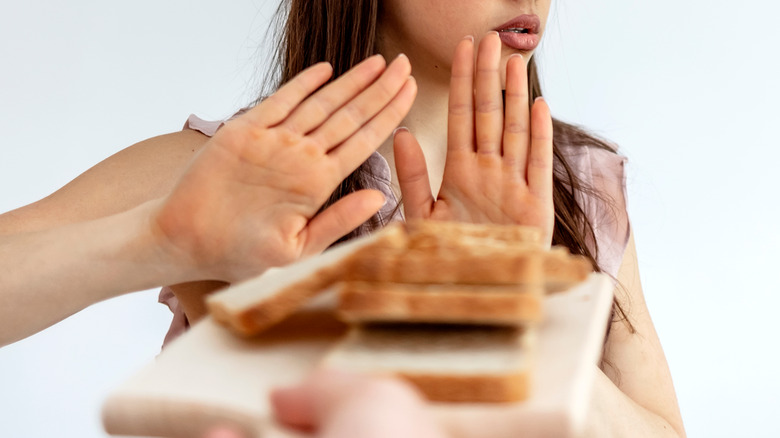What To Expect When Following A Gluten-Free Diet
The gluten-free diet was created for people with celiac disease, which is a condition in which the body has an immune response to gluten. However, there are other reasons people may feel better after cutting out gluten. People without celiac disease may be sensitive to gluten and may see positive changes when removing it from most or all foods in their diets (via Livestrong). If you experience negative side effects when eating gluten, those side effects should go away when you stop eating gluten. If gluten makes you feel groggy or fatigued, for example, you may notice your energy levels improve when you follow a gluten-free diet.
You may also notice that your digestion improves when you cut out gluten. This is because gluten can be difficult for the body to break down, and it can cause digestive issues like bloating, gas, and diarrhea. However, there are many potential downsides to following a gluten-free diet. For one, it can be very restrictive and difficult to stick to. This is because gluten is found in many common foods, such as bread, pasta, and baked goods. Whole grains that are found in many foods with gluten are important for a healthy diet because they are a good source of fiber, vitamins, and minerals. Unless you have celiac disease or another medical condition that requires you to avoid gluten, there's no need to cut it out of your diet.
What to know about celiac disease
Most people who follow a gluten-free diet do so because they have celiac disease. Celiac disease is an autoimmune disorder that affects the digestive system. When people with celiac disease eat gluten, their body mounts an immune response that causes damage to the small intestine (via Mayo Clinic). This can lead to the malabsorption of nutrients, which can cause a variety of health problems.
There is no cure for celiac disease, but the good news is that it can be managed by following a strict gluten-free diet. This means avoiding all foods that contain wheat, rye, and barley. For some people, this may also mean avoiding oats, as they may be cross-contaminated with gluten-containing grains. If you have celiac disease, or are considering going gluten-free, it's important to talk to your doctor first. They can help you determine if a gluten-free diet is right for you and make sure you are getting all the nutrients you need. They can also help you navigate the challenges of living gluten-free.


